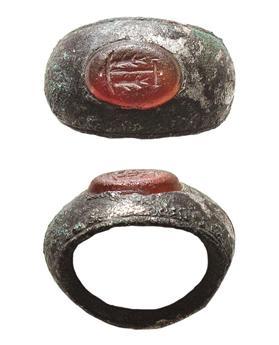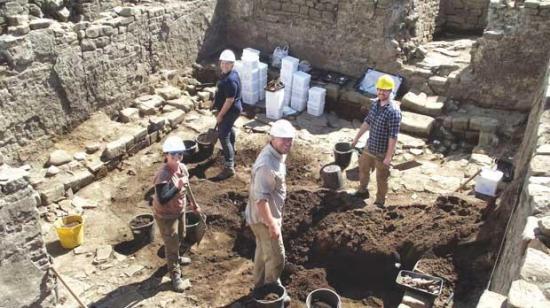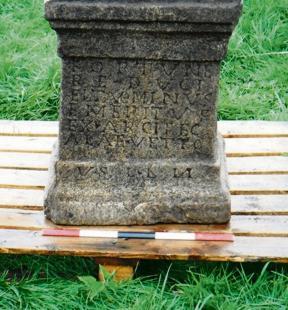Source -http://www.thenorthernecho.co.uk/news/11355645._/?

Archaeologists have discovered a bath house with 7ft high walls, which were once covered with brightly covered painted designs
Archaeologists have unearthed the “Pompeii of the north" at a County Durham excavation site.
The discoveries at Binchester Roman Fort, near Bishop Auckland, have uncovered some of the most well preserved remnants of an empire dating back 1800 years ago.
This includes one of the earliest pieces of evidence for Christianity in Roman Britain in the shape of a silver ring.

One of the earliest pieces of evidence of Christianity in Roman Britain in the shape of a silver ring. Photos: Durham University/PA Wire
Archaeologists have discovered a bath house with 7ft high walls, which were once covered with brightly covered painted designs, and the original floor, doorways and window openings.

Archaeologists working at the bath house which was found with the original floor, doorways and window openings and was once covered with brightly-painted designs.
An inscribed altar dedicated to the Roman Goddess, Fortune the Home-bringer, has also been unearthed.

The inscribed altar dedicated to the Roman Goddess, Fortune the Home-bringer, found at Binchester Roman Fort
Dr David Mason, principal archaeologist at Durham County Council, said: “These findings are hugely significant as they are virtually intact and present a graphic illustration of life under the Roman Empire.
“They are so stunning and spectacular that we can claim we have our very own ‘Pompeii of the north’ right on our doorstep.”
The excavation project, now in its sixth year, is a joint venture between archaeologists at Durham County Council, Durham University, the Architectural and Archaeological Society of Durham and Northumberland and several American universities.
Project co-ordinator Dr David Petts, lecturer in archaeology at Durham University, said: “Our excavations have uncovered parts of one of the best preserved Roman buildings in Britain.
“The building itself and the wonderful array of artefacts we have recovered from Binchester give us an unparalleled opportunity to better understand life on the northern frontier in the Roman period.
“The most unique feature of these remains is the sheer scale of their preservation. It is possible to walk through a series of Roman rooms with walls all above head height; this is pretty exceptional for Roman Britain.”
The altar has been inscribed by a retired trooper who served with a unit of the Spanish cavalry based at Binchester.
The trooper described his rank as architectus and this is the only example from the whole of the Roman Empire, outside of Rome itself, which shows that architects were on the staff of auxiliary cavalry units and not just the legions of the Emperor’s personal protection unit, the Praetorian Guard.
Last year, first year Durham University student Alex Kirton working at Binchester found a 1,800-year-old carved stone head of what is believed to be a Roman god.